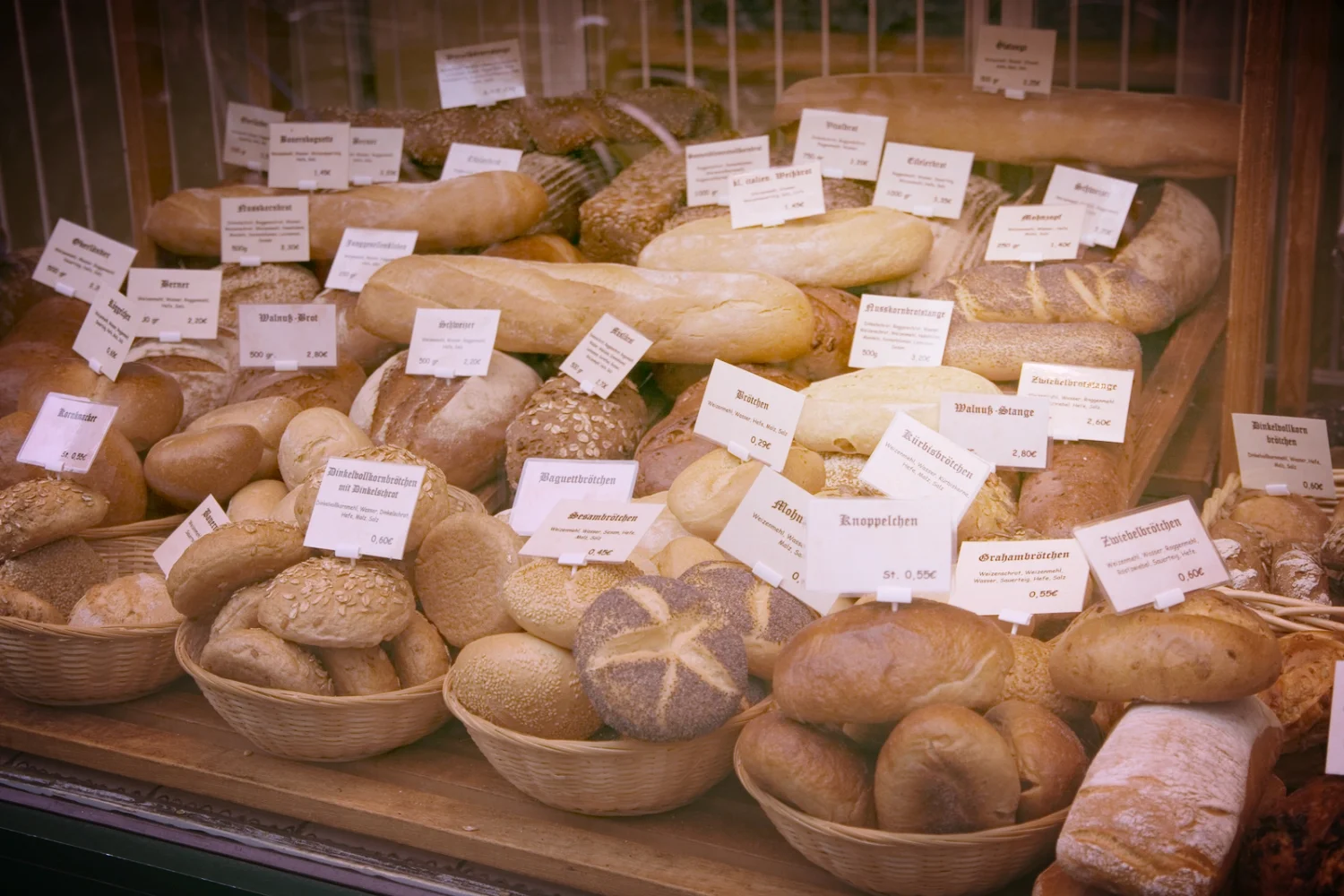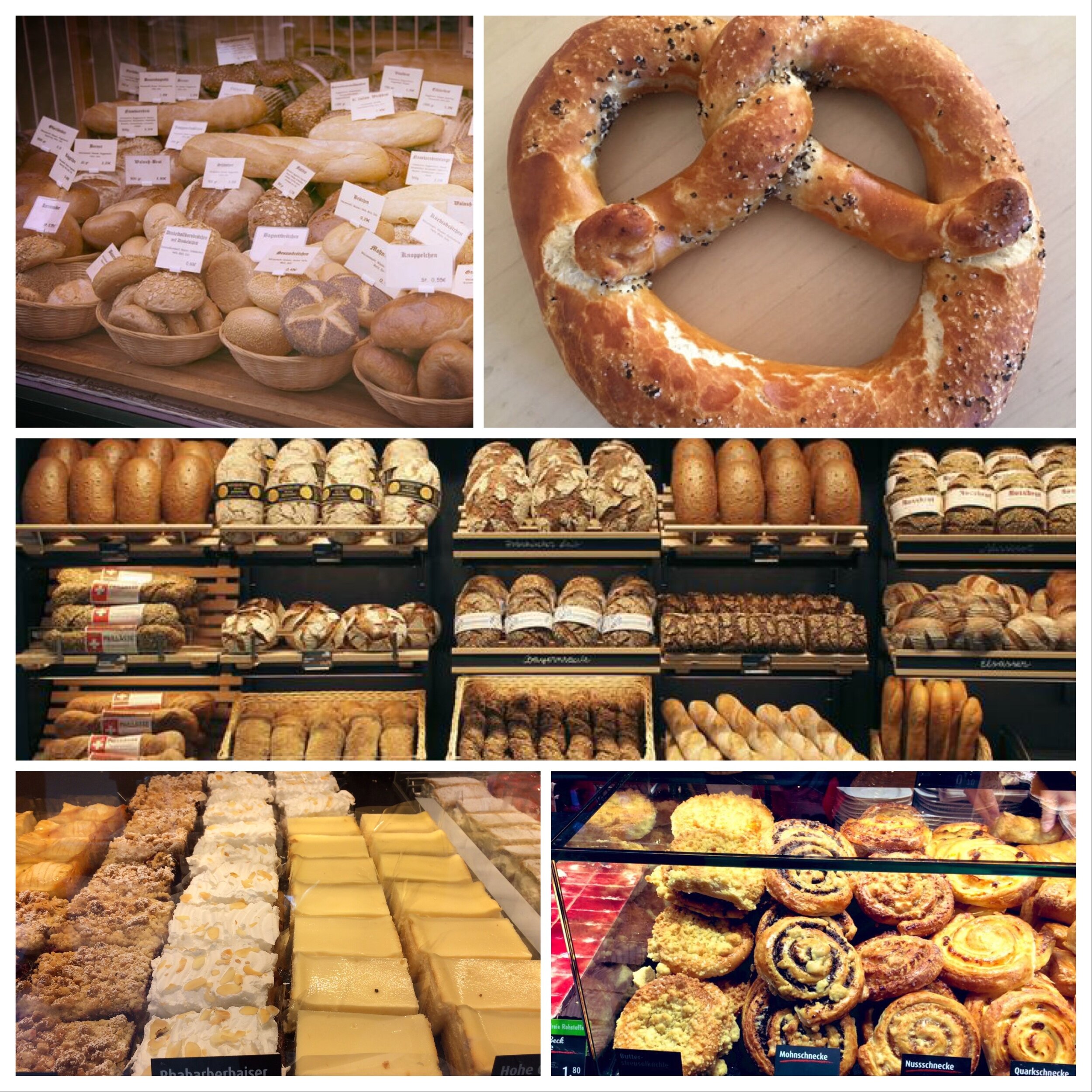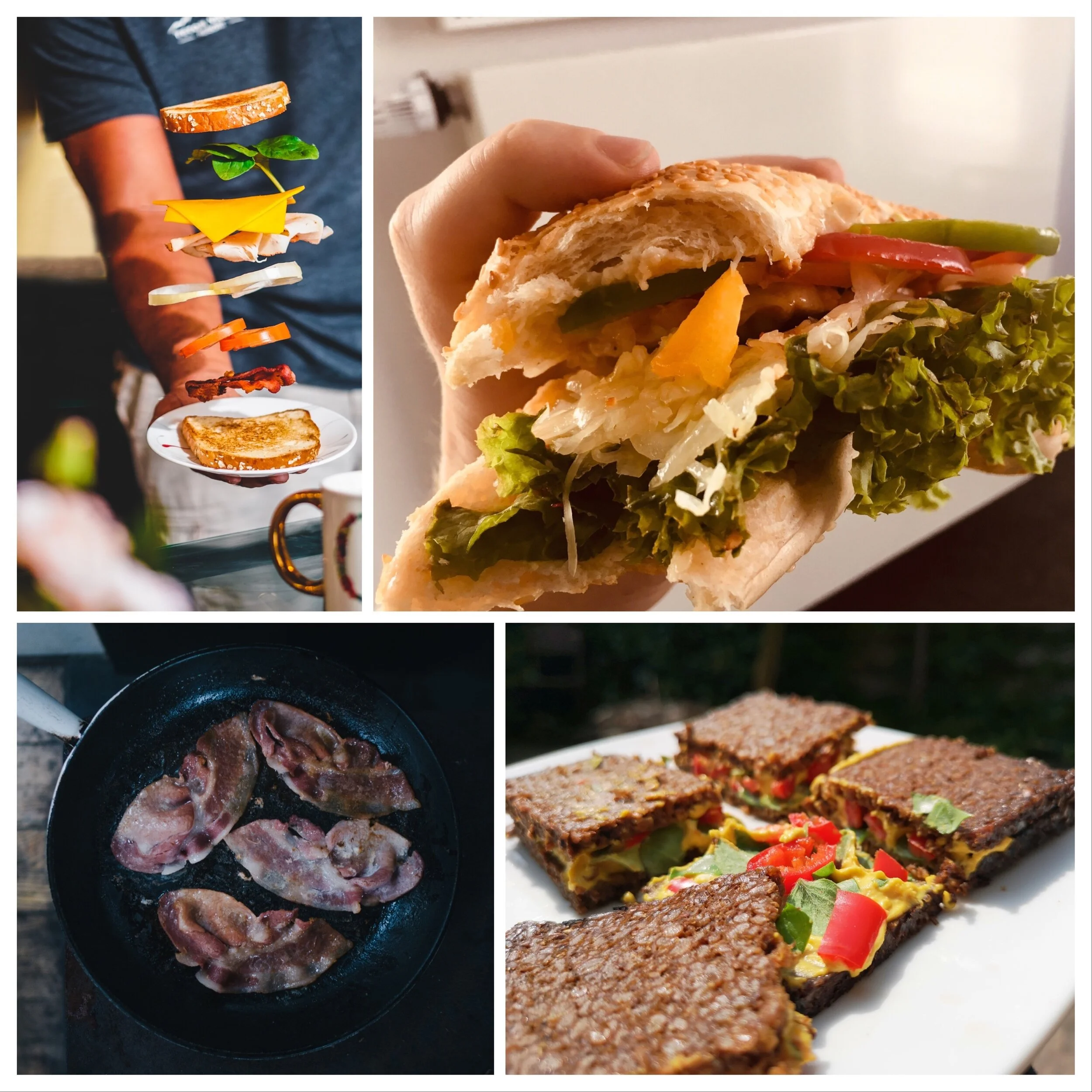Bread in Germany: All You Knead to Know
Whenever my German girlfriend (now German wife) came to visit me in the UK, I would make every attempt to pretend I wasn’t a totally gross twenty something student, living with equally gross twenty something students. It was a no easy process, given that much of the time was taken up with locating the hoover or working out if we could repurpose hand soap to do the numerous dirty dishes. Once the cleaning was finished, I would scurry off to the nearest supermarket to buy all the things she liked. Bottled water was a must, fancy looking jam was required and as many packets of HobNobs as I could carry. Most importantly of all was bread, lots and lots of bread. I would buy countless different types, but it seemed to me that no matter how much of the stuff I bought there would always be a daily trip to buy some more. No matter which kind or where we bought it I could always sense a slight air of disappointment. I simply assumed that my wife was a fussy eater. However, having lived in Germany for a few years, I have come to understand her lack of enthusiasm for Britain's baked goods. It was not that she was hard to please it was simply that all other breads, at least in the mind of many Germans, fail to comply with the impossibly high standards of the average local Backerei.
Bread, like beer, is something Germans take a lot of care over and it must be a certain way. To put it into perspective, it's like the British and a cup of tea. One of the main complaints of Britons abroad is that no matter how fabulous the weather, how comfortable the hotel or how amazing the landscape, it's hard to find a decent cup of tea. For Germans, the bread is never as good as it is at home. Italian bread is OK but the flour isn't quite right. French breads have their merits, but are too brittle. British bread is similar to eating a brick. None of these options can compete with those on offer on their home soil.
This may seem a little perplexing and even a little condescending, but differences are easy to see after a quick stop at any local German bakers. The first thing that hits you is the sheer amount of bread on offer: Bauern brot (farmers bread), Misch brot (mixed bread), Volkorn brot (full corn), Nasser laib (moist bread), Dinkel brot (old recipe), Stein Offen (Stone oven), Sonnen blumen (sunflower) or Kürbis (pumpkin). Hell, that's not even including bread rolls which are a whole other question. Bread rolls are region specific and are given different names depending where you are in Germany. I firmly believe that if you were dropped in to an unknown part of Germany, you could easily orientate yourself by asking for a bread roll at the local bakery. Who needs a compass when you have bakers? Semmel, Brothchen, Weggle, Schreppa or Schmitta cover these regions and, of course, all of these come in different sizes. Pretzels are a separate category, with regions adjusting the texture, size and contents.
The bakeries themselves vary from state to state and even city to city as well, with different areas having different local and national chains. The quality and price have some variance, but often the standard remains the same. My German friends can easily tell you which area has the best bakery (generally it's their own), but if I’m honest, I’ve rarely had a bad experience.
This contrasts with the UK, which is dominated by a handful of industrial chains. Some supermarkets may produce bread in-house, but it is usually to an industrialised recipe and deviations are not enthusiastically welcomed. It is not only recipes that differ, but the language too. It is common to hear or see the term "Artisan bread" in the UK . In the UK, the term is shorthand for better quality and a higher price. It is perhaps because of Germany's wealth of bakeries, expectations of quality and regional traditions, that the term is rarely if ever used.
Interestingly, Germany's bakeries have issues with industrial baking, with people quick to complain about the use of frozen "Teig" or dough. The perceived lack of quality is not accepted and can quickly damage a company’s bottom line. This is perhaps why many of the larger national chains run looped videos of employees baking things in their stores, in a silent but heavy-handed attempt to dispel any rumours about drops in quality. Even though Germany has a distaste of this side of the industry, they seem to have managed to combine the industrial with the artisanal. Even the smaller chains, those based in one or two villages, employ large groups of certified bakers to produce fresh products in a factory setting, aiming to get the best of both worlds. Handmade, quality products can still be made with modern methods, which succinctly sums up an important part of the German mindset.
The demand for high quality and attempts to maintain it are perhaps why the bakery is still the fulcrum of social life in Germany. Where the UK and especially the English are known for afternoon tea, Germany likes to take Kaffee und Kuchen at around 4pm. Bakeries are often busiest at this point, with all ages and sexes taking time out of their day to enjoy it. Despite attempts by Starbucks and recently Dunkin' Donuts to take on the bakeries in Germany, it is perhaps the cultural importance placed on a cup of coffee and a piece of cake that prevents them from making any massive inroads. It is refreshing to see cities in Germany with 10 or 20 different local bakeries and only one Starbucks. It turns out that piss weak coffee and a tiny piece of flapjack with a marshmallow stuck on it are not as enticing to Germans as they are to other nationalities around the world. Of course, you still see people poncing around with the famous green and white cups, but they're so much easier to avoid here.
There is a lot to praise when it comes to bread in Germany, whether that is just the quality or range of options. The fact that small independents can compete with global brands is impressive. The demand for high quality and attempts to maintain it are perhaps why the bakery is still the fulcrum of social life in Germany. The UK and especially the English are known for afternoon tea, whereas Germany likes to take Kaffee und Kuchen at around 4pm. Bakeries are often busiest at this point, with diverse groups taking time out of their day to enjoy it. Despite attempts by Starbucks and recently Dunkin' Donuts to take on the bakeries in Germany, it is perhaps the cultural importance placed on a cup of coffee and a piece of cake that prevents them from making any massive inroads. It is refreshing to see cities in Germany with 10 or 20 different local bakeries and only one Starbucks. Global chains do have an impact on local bakeries, with many of the modern coffee shops attempting to emulate the American model. Even so, I doubt whether there will be a day that Snickers Cake or Rocky Road Brownies overtake Käsekuchen in the hearts of Germans.









